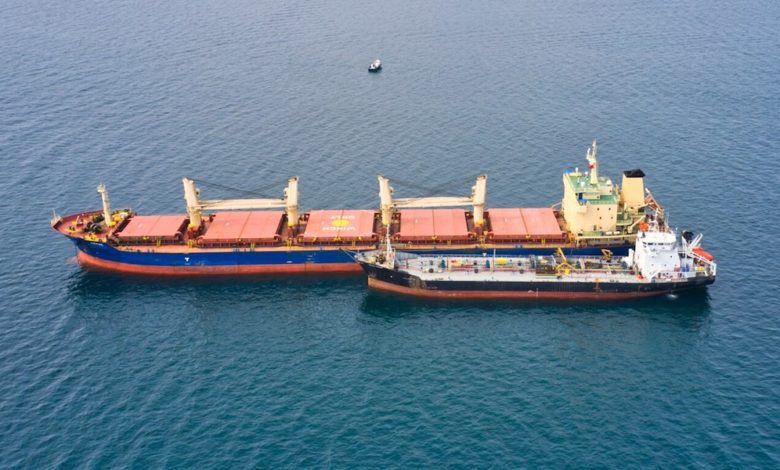A leading name in the bunkering industry has called for the global adoption of mass flow meters to improve transparency and quality in one of the most dubious areas of shipping.
“Despite the bunkering industry’s scale and the essential role it plays in supporting global maritime trade, much of it is still steeped in old-fashioned, outmoded operational practices. There is a continuing lack of transparency in the way marine fuel is delivered. This has to change,” argued Kenneth Dam, global head of bunkering at TFG Marine, in a post on the company’s website. TFG Marine is a joint venture between Trafigura and John Fredriksen founded two years ago. Dam urged other leading bunkering hubs to follow the lead of Singapore and get mass flow meters installed as soon as possible.
Precise mass flow measurement provides greater integrity through certified calibration and tamper-proof seals. Mass flow meters make use of the Coriolis effect to allow the flow of fluids and gases to be measured with a high degree of precision. When fitted to ships, mass flow meters produce computerised records of exact volumes delivered in real time. Both counter-parties have access to the same data.
The industry-wide average for mass flow meter adoption is less than 1%
Dam suggested there is an “inherent ambiguity” in the way bunker fuel has traditionally been delivered.
Marine fuels are supplied around the globe at different densities and in diverse atmospheric and climatic conditions. These variables have a significant impact on the quality and quantity of the bunker fuel supplied.
“Traditional delivery systems, which only monitor volume flow, cannot capture these differentials with any precision,” Dam pointed out. Suppliers and customers therefore rely on manual measurement and adjustment formulae to agree the specifications for every transaction.
“The complexity and opacity of this process makes it difficult to track and report transactions with confidence and accuracy,” Dam said, adding that it also leaves customers vulnerable to fraud and corruption.
Supplier malpractice takes many forms. It can include delivering fuel with high water, slops or air content, providing incorrect fuel temperatures or tampering with gauging, delivery equipment or paperwork to skew delivery data.
A recent Blue Insight study assessed bunker deliveries at Rotterdam and Fujairah, the world’s second and third largest bunkering ports. It concluded that reported VLSFO bunker volumes at these two locations resulted in $250m in operating losses for suppliers across 2021 with bunker buyers being severely short-changed on volumes.
Over a third of the TFG Marine fleet already has mass flow meter technology with more of its barges set to be mass flow meter-equipped over the next two years. That compares with an industry-wide average for mass flow meter adoption of less than 1%, according to Dam.
TFG Marine, which wants mass flow metes to be made mandatory globally, has joined with 50 other industry participants representing 2,000 vessels to appeal to the Rotterdam and the Antwerp port authorities to follow Singapore’s lead and introduce mandatory mass flow mete delivery in their jurisdictions.
The bunkering industry provides over 200m metric tonnes of marine fuel annually, a market that was worth $110bn globally in 2020 and is projected to reach $165bn by 2030.






